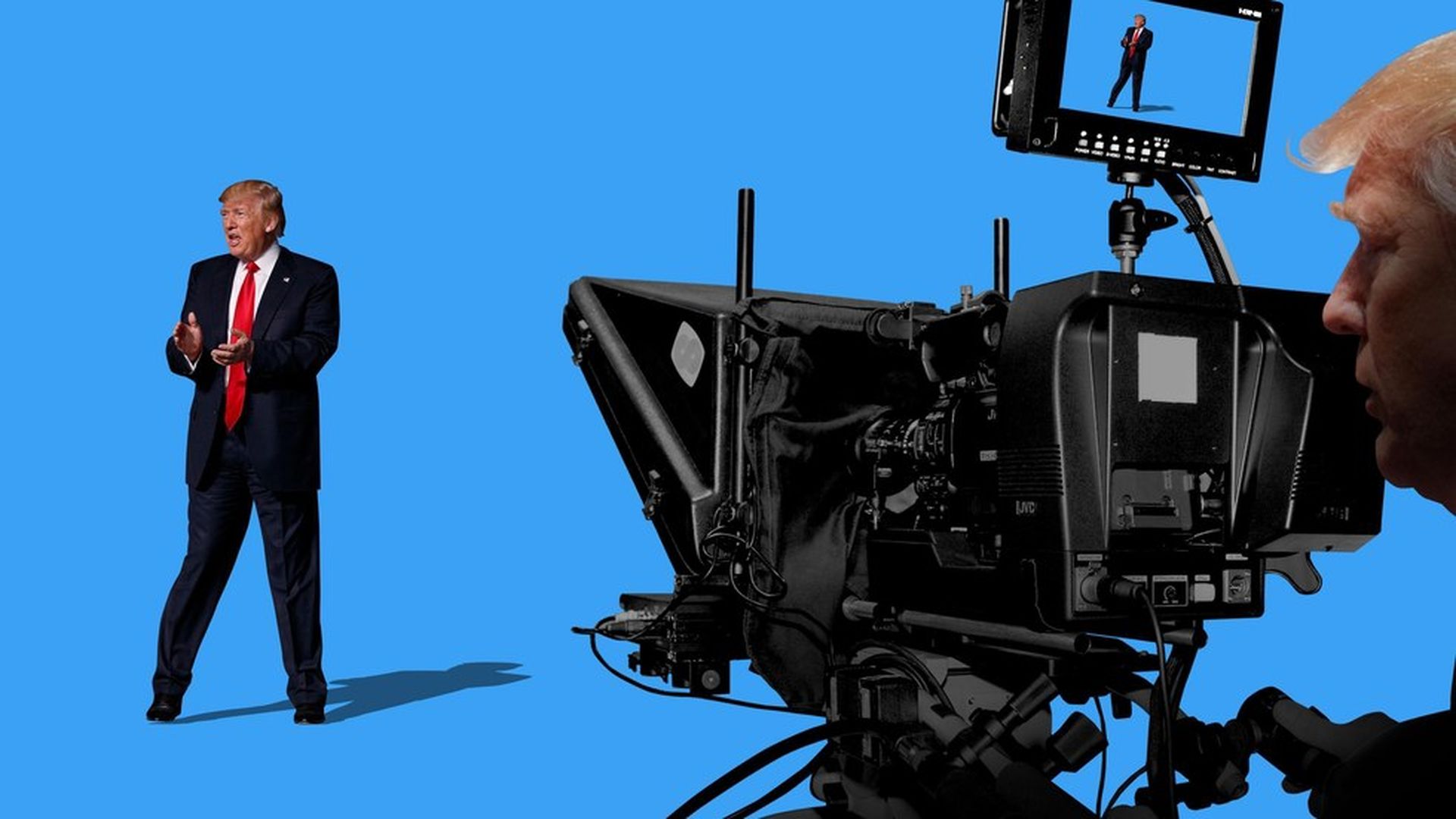How Trump thinks like a journalist
Add Axios as your preferred source to
see more of our stories on Google.

Lazaro Gamio / Axios
President Trump broke a lot of news in his whirlwind of 100-day interviews. But a close read of the interviews reveal a skill that helped him win the presidency: Trump instinctively understands the reporter's psychology. You see this side of Trump in his off-hand asides to the journalists interviewing him that you get when the publication publishes the full transcript, as the AP and Bloomberg did.
Why this matters: Trump's presidential victory was fueled by an understanding of media and showmanship, from the news generated by his Twitter account to his rallies being fodder for live cable television. He's been sparring with and feeding Manhattan journalists for decades and brought that skill/obsession to the White House. The 100-day interviews are the freshest examples of the flip side to his media hatred — he eats up the coverage because he's his own audience.
Here's Trump satisfying the White House reporters' most primal urge — the need to break exclusive news:
- "Well, I'm just telling you, I — I haven't even mentioned this to anybody. I mean, I'm giving you something first." (To Bloomberg's Jennifer Jacobs and Margaret Talev, when he told them he was open to raising the gas tax to fund infrastructure investment.)
- "Well I'm going to roll (out) probably on Wednesday, around Wednesday of next week, we're putting out a massive tax reform ... And that's a big story, because a lot of people think I'm going to put it out much later." (Trump self-consciously giving the AP's Julie Pace the scoop that he'd be releasing his tax reform plan the following week. This was news not just to AP, but to Trump's staff and the Treasury Department. The final result was a one-page "plan," extremely light on details.)
- "Breaking — we have breaking news. Is this going to be breaking news, Jennifer?" (To Bloomberg's Jacobs, as Trump reveals his willingness to meet with Kim Jong-Un. He knew this would be controversial and would generate the type of headline every reporter craves.)
Here's Trump deploying the ultimate form of flattering to a journalist — showing he reads the journalist's work:
- "You know, I had — Jennifer, you reported this once. I had a lot of Bernie Sanders voters for me." (To Bloomberg's Jacobs, while Trump was trying to emphasize a point about his trade position.)
Here's Trump playing editor in real time, directing the journalists interviewing him on how they should write — or even visually present — the final story:
- "I'm just telling you, Obamacare doesn't cover pre-existing conditions because it won't be here. I would mind that quote ... It's a risque quote. But it's true." (To Bloomberg.)
- The Washington Post's White House bureau chief Philip Rucker says Trump asked him during their interview to publish his victorious election map on the Post's front page.
- "Nobody wrote that story." (A frequent refrain Trump uses. He did it in his interviews with Bloomberg and the AP, goading them to write about his success in saving money negotiating prices of F-35 fighter jets.)
